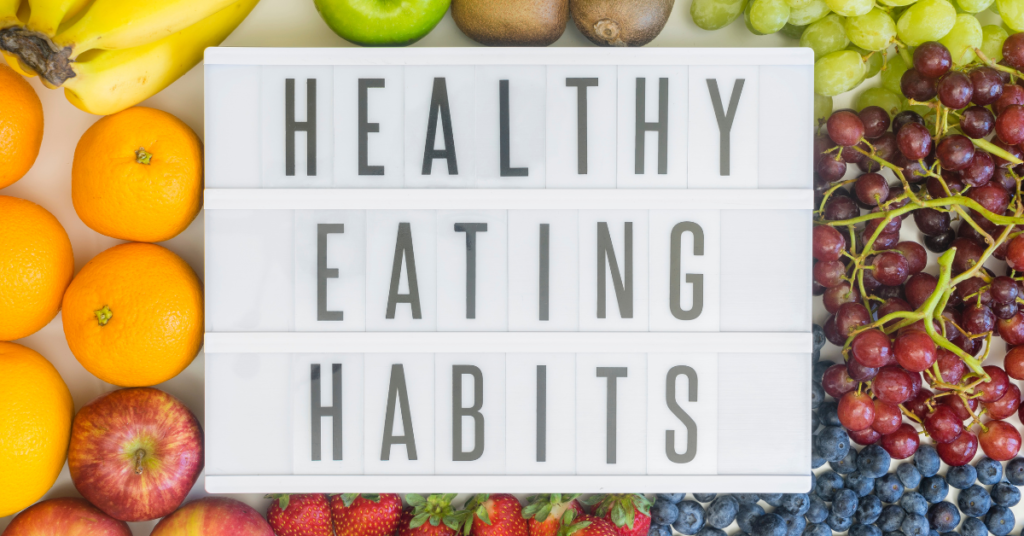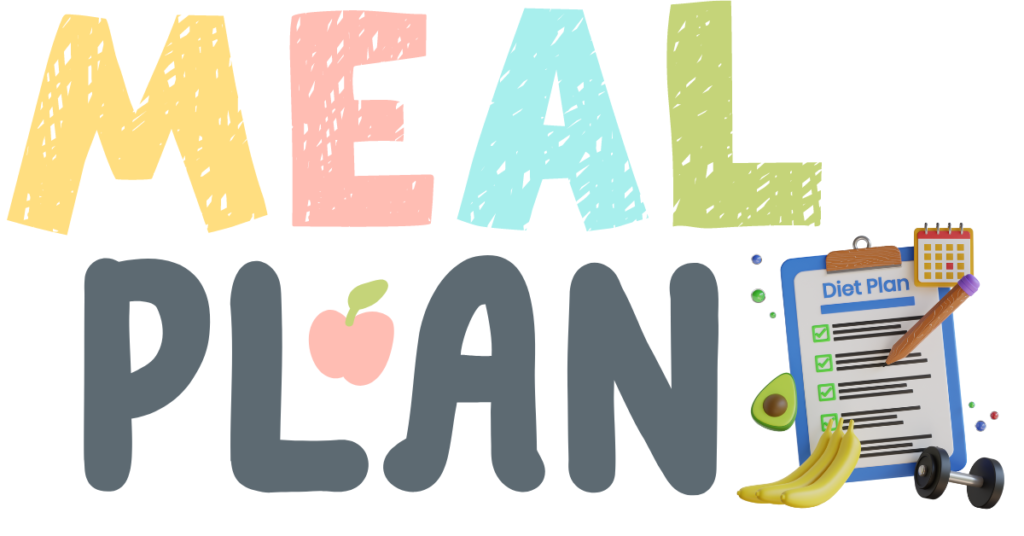Healthy Eating for Menopause Wellness: Nourishing Your Body
Maintaining healthy eating habits is crucial for women in their 50s to support their overall well-being and optimize their health. In this blog post, we will explore essential tips and strategies for adopting healthy eating habits in your 50s. By implementing these habits, you can nourish your body, boost energy levels, and reduce the risk of age-related health conditions.
Top Healthy Eating Habits for Women in Their 50s

Incorporating healthy eating habits is crucial for women in their 50s to support their overall health, maintain a healthy weight, and reduce the risk of chronic diseases. Here are some top habits to consider:
1. Incorporating Nutrient-Dense Foods: Focus on consuming nutrient-dense foods that provide a wide range of vitamins, minerals, and antioxidants. Include plenty of fruits, vegetables, whole grains, lean proteins, and low-fat dairy products in your diet. These foods provide essential nutrients to support your body’s needs.
2. Balancing Macronutrients: Opt for a balanced diet that includes the right proportion of macronutrients. Ensure you consume adequate amounts of carbohydrates, proteins, and healthy fats. Carbohydrates provide energy, while proteins help with muscle maintenance and repair. Healthy fats, such as those found in avocados, nuts, and olive oil, support heart health and provide satiety.
3. Prioritizing Fiber-Rich Foods: Include high-fiber foods like whole grains, legumes, fruits, and vegetables in your meals. Fiber aids in digestion, helps maintain bowel regularity, and can contribute to weight management. Aim for at least 25 grams of fiber per day.
4. Choosing Heart-Healthy Fats: Opt for sources of healthy fats, such as avocados, nuts, seeds, and fatty fish like salmon. These fats contain omega-3 fatty acids, which are beneficial for heart health. Limit saturated and trans fats found in fried and processed foods.
5. Hydrating Well: Stay hydrated by drinking an adequate amount of water throughout the day. Water plays a vital role in digestion, nutrient absorption, and temperature regulation. Aim for at least eight glasses of water per day, or more if you are physically active.
6. Limiting Processed and Sugary Foods: Minimize the intake of processed foods, sugary snacks, and beverages. These items often contain added sugars, unhealthy fats, and artificial ingredients. Instead, choose whole, unprocessed foods to provide your body with optimal nutrition.
By adopting these healthy eating habits, you can nourish your body, support overall health, and enhance your well-being in your 50s and beyond. Remember, it’s always beneficial to consult with a healthcare professional or registered dietitian for personalized advice tailored to your specific needs.
Meal Planning and Preparation Tips

Meal planning and preparation can be a valuable tool for women in their 50s to maintain a healthy diet and support their overall well-being. Here are some tips to help you with meal planning and preparation:
1. Plan Your Meals: Take some time to plan your meals for the week ahead. Consider your nutritional needs and preferences, and create a balanced menu that includes a variety of fruits, vegetables, whole grains, lean proteins, and healthy fats. Planning your meals in advance can save time and ensure you have nutritious options available.
2. Create a Grocery List: Once you have your meal plan, make a detailed grocery list of all the ingredients you’ll need. Stick to your list while shopping to avoid impulse purchases and ensure you have everything you need to prepare your meals.
3. Batch Cook: Consider batch cooking certain meals or ingredients that can be prepared in advance and stored for future use. For example, you can cook a large batch of grains like quinoa or brown rice and use them throughout the week in various dishes. Preparing protein sources like grilled chicken or roasted vegetables in bulk can also save time.
4. Prep Ingredients in Advance: Dedicate some time each week to prepping ingredients. Wash and chop vegetables, portion out snacks, and marinate proteins. Having prepped ingredients on hand makes it easier to assemble meals quickly during busy days.
5. Use Meal Prep Containers: Invest in meal prep containers to portion out and store your meals. These containers help with portion control and make it convenient to grab a pre-prepared meal for work or on-the-go.
6. Experiment with Freezer Meals: Explore freezer-friendly recipes that can be prepared in advance and stored for future use. Freezer meals can be a lifesaver on days when you don’t have time to cook. Consider making large batches of soups, stews, or casseroles and freezing individual portions for later.
7. Stay Organized: Keep your pantry and refrigerator well-organized to easily find ingredients and prevent food waste. Rotate perishable items and label containers with dates to ensure freshness.
8. Stay Hydrated: Don’t forget to stay hydrated throughout the day. Keep a water bottle handy and aim to drink an adequate amount of water daily.
By incorporating these meal planning and preparation tips into your routine, you can simplify healthy eating and ensure you have nutritious meals readily available, supporting your overall health and well-being in your 50s and beyond.
Mindful Eating Practices

Mindful eating is a valuable practice that can help women in their 50s cultivate a healthy relationship with food, improve digestion, and enhance overall well-being. Here are some mindful eating practices to incorporate into your routine:
1. Eat with Awareness: Slow down and pay attention to your eating experience. Engage all your senses by noticing the colors, textures, flavors, and aromas of the food. Take small bites and chew slowly, savoring each mouthful.
2. Eliminate Distractions: Minimize distractions while eating. Turn off the TV, put away electronic devices, and create a calm and peaceful eating environment. This allows you to fully focus on your meal and the sensations it provides.
3. Listen to Your Body: Tune in to your body’s hunger and fullness cues. Eat when you are physically hungry and stop eating when you are comfortably satisfied. Avoid overeating or eating out of boredom, stress, or emotional reasons.
4. Practice Gratitude: Before you begin your meal, take a moment to express gratitude for the nourishment and sustenance the food provides. Cultivating a sense of gratitude can enhance your eating experience and promote a positive mindset.
5. Mindful Food Choices: Make conscious and nourishing food choices. Opt for whole, unprocessed foods that provide essential nutrients and support your overall health. Consider the nutritional value and how the food will make you feel.
6. Savor Each Bite: Take the time to savor and appreciate each bite of food. Notice the flavors, textures, and sensations in your mouth. Engaging in the present moment allows you to fully enjoy the eating experience.
7. Eat Until Satisfied, Not Stuffed: Pay attention to your body’s signals of satiety. Aim to eat until you feel comfortably satisfied, not overly full. Give yourself permission to leave some food on your plate if you are no longer hungry.
8. Practice Mindful Portion Control: Be mindful of portion sizes. Use smaller plates and bowls to help control portion sizes visually. Take a moment to assess your hunger level before reaching for seconds.
9. Be Non-Judgmental: Adopt a non-judgmental attitude towards your eating habits and food choices. Avoid labeling foods as “good” or “bad” and practice self-compassion and self-acceptance.
10. Appreciate the Eating Process: Approach each meal as an opportunity to nourish your body and engage in self-care. Appreciate the effort that went into preparing the food and the joy it brings to your life.
By incorporating these mindful eating practices into your daily routine, you can cultivate a healthier relationship with food, enhance your digestion, and promote overall well-being during your menopausal journey.
Seeking Professional Guidance

Seeking professional guidance from a nutritionist is highly recommended when creating a diet plan for menopausal women over 50. Nutritionists have the expertise to provide personalized advice based on individual needs and health considerations. Here’s why seeking professional guidance is important:
1. Tailored Nutrition Recommendations: A nutritionist can assess your specific nutritional needs during menopause and create a customized diet plan that supports your overall health and addresses specific concerns such as weight management, bone health, and heart health.
2. Managing Menopause Symptoms: Nutritionists can help you identify foods that may alleviate menopause symptoms such as hot flashes, night sweats, and mood swings. They can recommend dietary modifications and specific nutrients that can support hormonal balance and reduce the severity of symptoms.
3. Optimizing Nutrient Intake: Menopause is associated with changes in metabolism and nutrient requirements. A nutritionist can ensure that your diet provides adequate amounts of essential nutrients such as calcium, vitamin D, omega-3 fatty acids, and antioxidants to support overall well-being and minimize the risk of age-related conditions.
4. Weight Management: Menopause can lead to changes in body composition and weight gain. A nutritionist can help you develop a balanced diet plan that supports healthy weight management, taking into account factors such as calorie needs, portion control, and strategies to manage cravings and emotional eating.
5. Addressing Specific Health Conditions: If you have pre-existing health conditions such as diabetes, high blood pressure, or osteoporosis, a nutritionist can provide guidance on dietary modifications to manage these conditions while considering the unique challenges of menopause.
6. Long-Term Health: Menopause is a time when women should focus on long-term health. A nutritionist can guide you in making sustainable dietary choices that support healthy aging, reduce the risk of chronic diseases, and promote overall well-being beyond menopause.
By seeking professional guidance from a nutritionist, you can receive personalized advice, gain a better understanding of your nutritional needs during menopause, and develop a diet plan that optimizes your health and well-being. Remember to consult with a qualified healthcare professional for specific guidance tailored to your individual circumstances.
Recap

Adopting healthy eating habits is essential for women in their 50s to support their overall well-being during the transformative journey of menopause. By incorporating nutrient-dense foods, balancing macronutrients, prioritizing fiber-rich foods, choosing heart-healthy fats, hydrating well, and limiting processed and sugary foods, women can optimize their health and manage menopause symptoms effectively.
Additionally, practicing mindful eating, engaging in regular exercise, and seeking professional guidance ensure a comprehensive approach to healthy living during this stage of life. Embracing self-care and managing hot flashes effectively are also crucial aspects of navigating menopause with grace and resilience.
Remember, you don’t have to face menopause alone. Reach out to healthcare professionals for guidance and support, as they can provide personalized advice and help you make informed decisions about your health. Embrace this transformative phase with confidence and prioritize your well-being as you navigate the journey of menopause.







